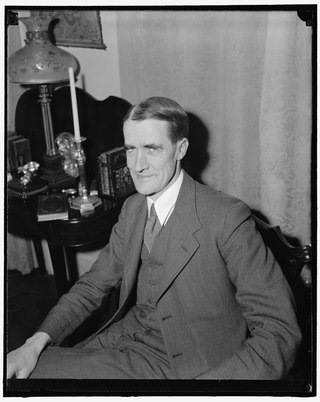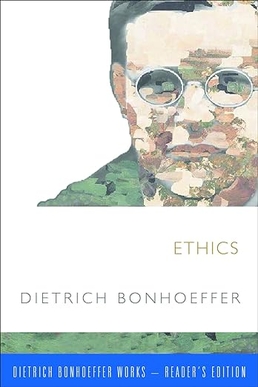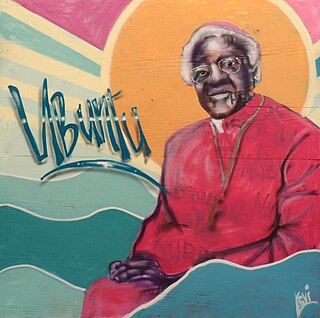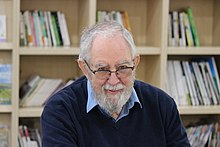
Dietrich Bonhoeffer was a German Lutheran pastor, neo-orthodox theologian and anti-Nazi dissident who was a key founding member of the Confessing Church. His writings on Christianity's role in the secular world have become widely influential; his 1937 book The Cost of Discipleship is described as a modern classic. Apart from his theological writings, Bonhoeffer was known for his staunch resistance to the Nazi dictatorship, including vocal opposition to Adolf Hitler's euthanasia program and genocidal persecution of the Jews. He was arrested in April 1943 by the Gestapo and imprisoned at Tegel Prison for 1½ years. Later, he was transferred to Flossenbürg concentration camp.

Allan Aubrey Boesak is a South African Dutch Reformed Church cleric, politician and anti-apartheid activist. He was sentenced to prison for fraud in 1999 but was subsequently granted an official pardon and reinstated as a cleric in late 2004.
Walter Brueggemann is an American Protestant Old Testament scholar and theologian who is widely considered one of the most influential Old Testament scholars of the last several decades. His work often focuses on the Hebrew prophetic tradition and sociopolitical imagination of the Church. He argues that the Church must provide a counter-narrative to the dominant forces of consumerism, militarism, and nationalism.
James Douglas Grant Dunn, also known as Jimmy Dunn, was a British New Testament scholar, who was for many years the Lightfoot Professor of Divinity in the Department of Theology at the University of Durham. He is best known for his work on the New Perspective on Paul, which is also the title of a book he published in 2007.
This is a sub-page for the Justification (theology) page.

The Kairos Document (KD) is a theological statement issued in 1985 by a group of mainly black South African theologians based predominantly in the townships of Soweto, South Africa. The document challenged the churches' response to what the authors saw as the vicious policies of the apartheid regime under the state of emergency declared on 21 July 1985. The KD evoked strong reactions and furious debates not only in South Africa, but world-wide.
African theology is Christian theology from the perspective of the African cultural context. It should be distinguished from black theology, which originated from the American and South African context and is more closely aligned with liberation theology. Although there are ancient Christian traditions on the African continent, during the modern period Christianity in Africa was significantly influenced by western forms of Christianity brought about by European colonization.
The Christian Institute of Southern Africa was an ecumenical progressive organisation founded by English and Afrikaans clergy in December 1963 to unite South African Christians against apartheid. The CI became deeply involved with black activists such as Steve Biko, and was banned by the state in 1977.
Luke Timothy Johnson is an American Catholic New Testament scholar and historian of early Christianity. He is the Robert W. Woodruff Professor of New Testament and Christian Origins at Candler School of Theology and a Senior Fellow at the Center for the Study of Law and Religion at Emory University.

Charles Earle Raven was an English theologian and Anglican priest. He was Regius Professor of Divinity at Cambridge University (1932–1950) and Master of Christ's College, Cambridge (1939–1950). His works have been influential in the history of science publishing on the positive effects that theology has had upon modern science.

The Uniting Presbyterian Church in Southern Africa (UPCSA) was formed and constituted in 1999 as the outcome of the union between the Reformed Presbyterian Church in Southern Africa (RPCSA) and the Presbyterian Church of Southern Africa (PCSA).
Larry Weir Hurtado, was an American New Testament scholar, historian of early Christianity, and Emeritus Professor of New Testament Language, Literature, and Theology at the University of Edinburgh (1996–2011). He was the head of the School of Divinity from 2007 to 2010, and was until August 2011 Director of the Centre for the Study of Christian Origins at the University of Edinburgh.
John J. Collins is an Irish-born American biblical scholar, the Holmes Professor of Old Testament Criticism and Interpretation at Yale Divinity School. He is noted for his research in the Hebrew Bible, as well as the apocryphal works of the Second Temple period including the sectarian works found in Dead Sea Scrolls and their relation to Christian origins. Collins has published and edited over 300 scholarly works, and a number of popular level articles and books. Among his best known works are the Between Athens and Jerusalem: Jewish Identity in the Hellenistic Diaspora ; Daniel in the Hermeneia commentary series ; The Scepter and the Star. The Messiahs of the Dead Sea Scrolls and Other Ancient Literature ; and The Bible after Babel: Historical Criticism in a Postmodern Age.
James R. Edwards is an American New Testament scholar. His primary research interests include Biblical studies and the history of the early church, with secondary interests in the Reformation and history of the twentieth-century German Church struggle. After gaining degrees from Whitworth University (B.A.), Princeton Theological Seminary (M.Div.), and Fuller Theological Seminary (Ph.D.), and further study at the University of Zurich and the University of Tübingen, Tyndale House (Cambridge), and the Center of Theological Inquiry (Princeton), in 1997 he joined the faculty at Whitworth University, Spokane, Washington. He continues his work as Professor Emeritus of Theology.

Ethics is an unfinished book by Dietrich Bonhoeffer that was edited and published after his death by Eberhard Bethge in 1949. Bonhoeffer worked on the book in the early 1940s and intended it to be his magnum opus. At the time of writing, he was a double agent; he was working for Abwehr, Nazi Germany's military intelligence organization but was simultaneously involved in the 20 July plot to assassinate Adolf Hitler. The central theme of Ethics is Christlikeness. The arguments in the book are informed by Lutheran Christology and are influenced by Bonhoeffer's participation in the German resistance to Nazism. Ethics is commonly compared to Bonhoeffer's earlier book The Cost of Discipleship, with scholars debating the extent to which Bonhoeffer's views on Christian ethics changed between his writing of the two books. In The Cambridge Companion to Dietrich Bonhoeffer, John W. de Gruchy argues that Ethics evinces more nuance than Bonhoeffer's earlier writings. In 2012, David P. Gushee, director of Mercer University's Center for Theology and Public Life, named Ethics one of the five best books about patriotism.

Moral Man and Immoral Society: A Study in Ethics and Politics is a 1932 book by Reinhold Niebuhr, an American Protestant theologian. The thesis of the book is that people are more likely to sin as members of groups than as individuals. The book attacks liberalism, both secular and religious, and is particularly critical of John Dewey and the Social Gospel.
Veli-Matti Kärkkäinen is a Finnish theologian. He is Professor of Systematic Theology at Fuller Theological Seminary. He is an ordained Lutheran minister and an expert on Pentecostal-Charismatic theologies.

Reconciliation theology or the theology of reconciliation raises crucial theological questions about how reconciliation can be brought into regions of political conflict. The term differs from the conventional theological understanding of reconciliation, but likewise emphasises themes of justice, truth, forgiveness and repentance.

Ubuntu theology is a Southern African Christian perception of the African Ubuntu philosophy which recognizes the humanity of a person through a person's relationship with other persons. It is best known through the writings of the Anglican archbishop Desmond Tutu, who, drawing from his Christian faith, theologized Ubuntu by a model of forgiveness in which human dignity and identity are drawn from the image of God. Human beings are called to be persons because they are created in the image of God.
Emmanuel Katongole is a Ugandan Catholic priest and theologian known for his work on violence and politics in Africa and theology of reconciliation.









